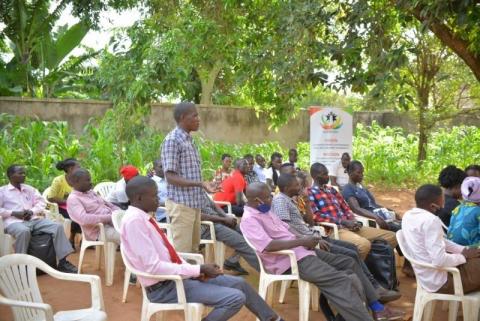
The re-introduction of multiparty politics in Uganda has witnessed an increase in violent and non-violent conflicts to a greater or lesser degree before, during and after general elections. The pattern and character of the conflicts are symptomatic of deep seated ethnic and partisan related hostilities that lie latent and mainly explode into violent conflicts before, during or after elections.
This has most often than not caused prolonged hatred, violence, bred luck of trust and understanding between young people and their leaders, apathy, complacency leading to compromised service delivery and accountability to the population and the most affected here are youth and women who form a 75% majority population. The violent conflicts have also compromised the tenets of Democratic Governance.
Despite the successful end of the February 2021 general elections in Uganda which demonstrated a monumental triumph of democracy, the results become highly contested something that has left most communities torn apart calling for urgent action for community cohesion. In this context therefore, CIDD-UG through her civic education project prioritized massive run for post election reconciliation interventions through organizing young people for post election dialogue as a means of promoting national healing, social cohesion and reconciliation.
The activity which has so far benefited (300) three hundred youth, has not only helped in building young people’s capacity to demand for value driven leadership and downward accountability but also worked towards building trust and understanding between young people (citizens) and their elected leaders through continued dialogues on 2021democratic process outcomes.
This activity of post election dialogue is being conducted in partnership with WIZARTS foundation in both Bukedi and Bugisu sub regions for a period six month up to august 2021.
